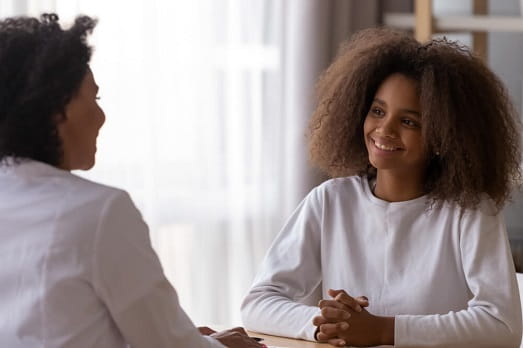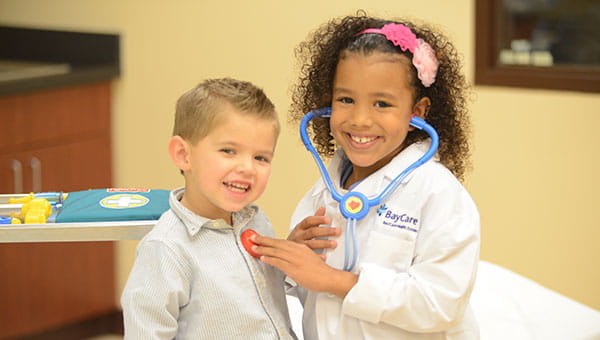Human papillomavirus (HPV) is a term for a group of more than 150 related viruses. HPV infection is so common in the United States that about 80 million people (one in four) are currently infected, and 80 percent of us will be infected at some point in our lifetimes. So why, you may be wondering, is it so important to get your adolescent vaccinated?
What are the health effects of HPV?
The most well-known features of HPV infection are the papillomas, or warts, that appear on the skin. The majority of genital warts are caused by HPV types 6 and 11. Depending on the virus type, it could cause plantar warts on the feet, common warts on the hands, face or neck, or genital warts. The genital HPV is the most dangerous. It doesn’t always cause warts, especially in women, but it can cause cervical cancer and other cancers. In men, the virus can cause cancers of the mouth and throat, as well as genital cancers.
How does a person get infected with HPV?
The virus is spread through skin-to-skin contact with an infected person. Genital HPV is spread through intimate contact. It can be passed on even if a person doesn’t know they’re infected, and even if they show no signs or symptoms. Then, the person who becomes infected may not show any symptoms until years later, making it difficult to pinpoint where and when the infection began.
Why would my child need to be vaccinated?
One reason is that research shows that the immune response is strongest in preteens, meaning that the best opportunity for lifetime protection is now. In addition, it’s very important that boys and girls complete the HPV vaccine series before they become sexually active. That’s not to say that your child (or any preteen) is ready for sexual activity—quite the opposite. But, by vaccinating now, you’re protecting your child from infection at any time in the future. By vaccinating now, you reduce your child’s risk of this type of cancer and oral and anal cancers.
What else should I know about the HPV vaccine?
The HPV vaccine has been around for more than a decade, and it’s been proven safe and effective over and over again. It can be given to children as young as 9, though it’s most commonly recommended for adolescent boys and girls at ages 11 and 12. If vaccinated before age 15, only two doses are required. For patients over the age of 15, three doses are required dut to the immune system slowing down. Studies have shown that side effects are mild and were similar to those seen with any other vaccine. The vaccine doesn’t contain any harmful ingredients, nor does it effect a women’s ability to get pregnant. This vaccine does not protect against other sexually transmitted diseases. The Center for Disease Control estimates that 31,200 cases of cancer may be prevented each year because of the HPV vaccine.




